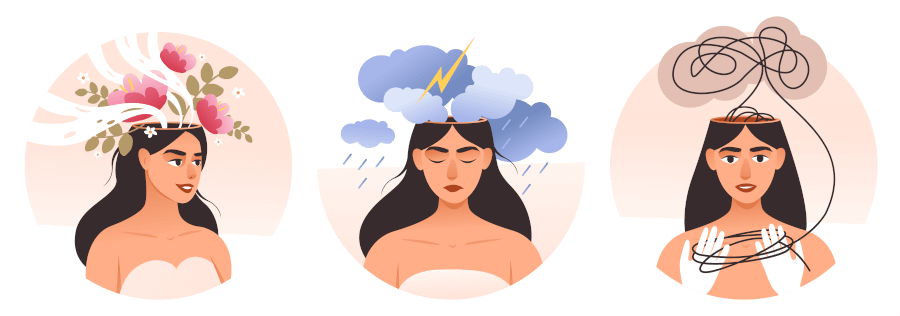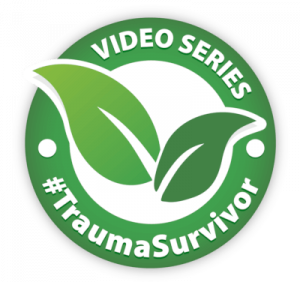
Choosing the right treatment programme can be a challenging endeavour. This series takes you through the key components of the thinking processes which are necessary to make an informed decision on selecting the best treatment centre for a loved one. Outlines the top things to look for in an inpatient rehab centre may include key considerations such as length of stay, quality of care and what to expect in treatment are all covered in this post.
Addiction is a chronic condition that can harm a person’s body and emotions while interfering with their ability to maintain relationships and function normally in daily life. Those suffering from addiction will be relieved to learn that there are treatment centres available to help them beat their disease and get their lives back on track. However, not all addiction treatment facilities are the same. It is critical to choose a treatment facility that offers interdisciplinary holistic care as well as cutting-edge aftercare services.
What is The Definition of a Rehab Centre?
A rehab centre is a facility that provides expert and all-encompassing treatment for people who are addicted. It could be a hospital, a residential treatment facility, an outpatient facility, or a combination of the three. Treatment facilities provide a variety of therapeutic approaches to treat both the physical and mental aspects of addiction. Individual counselling, group therapy, and behavioural therapies are examples of these approaches. Furthermore, certain facilities provide medication-assisted therapy (MAT), which assists patients in overcoming the physical and mental effects of withdrawal.
Why Should You Go To a Rehab That Offers Holistic Care?
Addiction is a complex disease with consequences not only for the physical body but also for the mind and spirit. As a result, it is critical to choose a rehabilitation facility that offers multidisciplinary holistic care in order to address all aspects of the disease. The term “holistic care” refers to the practise of treating the whole person, including their physical, emotional, and spiritual well-being.
Individualised and customised treatment approaches are used in holistic rehabilitation facilities to meet the specific needs of each patient. The treatment team could include medical professionals, therapists, counsellors, and other specialists who work together to develop an all-encompassing treatment strategy. This method focuses on addressing the underlying issues that contribute to addiction and assisting individuals in achieving and maintaining long-term sobriety.
Multidisciplinary holistic care may include a variety of treatments and services, including the ones listed below. Medical detoxification is a process that involves the use of medication to manage withdrawal symptoms and assist the individual in safely and comfortably detoxing from the substance. Cognitive-Behavioral Therapy, Dialectical Behaviour Therapy and Motivational Interviewing are examples of behavioural therapies most often associated with evidence based addiction treatment. These therapies assist patients in recognising and changing unhealthy thought patterns and behaviours. Yoga, music therapy, art therapy, and meditation are some examples of alternative therapies often used in rehabs, the alternative therapies are auxillary measures to help people reduce stress, improve their moods, and relax their bodies and minds that in turn enhances the overall process.
A holistic approach to treating addiction takes into account that addiction is a long-term illness that needs ongoing care and support. People can stay sober and continue to grow and thrive in their recovery with help from a treatment centre that offers aftercare services.
Modern Services for Aftercare
Aftercare is an important part of treating addiction. It gives people ongoing support and helps them learn the skills and tools they need to stay sober and not go back to drinking. Modern aftercare services may include individual and group therapy, peer support groups, vocational training, education, and connections to community resources.
One of the best things about modern aftercare services is that you can use them from anywhere. This means that people can still get help and support after they leave the treatment centre. Some examples of remote aftercare services are virtual therapy sessions, online support groups, and telehealth appointments with doctors.
How to Choose a Rehab Center
There are a few things to think about when choosing a rehab centre for addiction treatment. Here are some things to keep an eye out for:
- Accreditation and licencing
Choose a rehab centre that has been approved and licenced by the right groups. - Experience and Expertise
Look for a treatment centre with professionals who are qualified, have a lot of experience, and are experts in treating addiction. - Holistic Care
Choose a rehab centre that treats the physical, emotional, and mental parts of addiction through a multidisciplinary approach. - Aftercare Services
Look for a treatment centre that has modern aftercare services that offer support and care on an ongoing basis. - Location and environment
Pick a rehab centre that is in a safe, comfortable place that helps people heal and get better.
Consulting A Recovery Professional Before Choosing A Rehab
Most recovery professionals will give you free advice over the phone without you having to book a session. Of course a professional session with a recovery professional is recommended to get a full evaluation but nowadays that can be done remotely. Before booking into a rehab centre, it’s a good idea to talk to a recovery professional for a number of reasons:
- They can find the best treatment plan
A professional in recovery can help you figure out the best treatment plan for your needs. They can look at your addiction and tell you if you need inpatient or outpatient treatment, as well as what kind of therapy or counselling might work best. - They provide emotional support
Going to rehab can be scary and hard on the emotions. During this time, a recovery professional can give you emotional support and guidance, which can help ease any worries or fears you may have. - They know all the options and can help find the right rehab centre
People who work in recovery know about the different rehab centres and the programmes they offer. They can help you find a good rehab centre with the services and treatments you need. - Very often they can help with insurance and payment options
People who work in recovery can help you figure out what your insurance covers and how to pay for it. They can tell you what kinds of treatment may be covered by insurance and help you find other ways to pay if you don’t have insurance.
For addiction treatment to work, it’s important to choose the right rehab centre from the outset. A treatment centre that offers multidisciplinary holistic care and modern aftercare services can give people the support and care they need to beat addiction and live a full life in recovery. Before making a choice, make sure to do research and compare your options. Don’t be afraid to ask questions or get help from medical professionals and addiction specialists.
What are the best kinds of therapist services to have at a rehab?
There are many different types of therapists that can be helpful in a rehab centre, depending on the needs of the people there. People in recovery can get the best care and support from a wide range of therapists and therapies as part of a multidisciplinary approach. Some of the best types of therapists for a rehabilitation centre are:
- Addiction specialists
Are therapists who treat addiction and have a lot of experience helping people stop using drugs or doing other things that make them addicted. - Cognitive-Behavioral Therapists
CBT therapists try to find and change negative patterns of thinking and acting that lead to addiction. This kind of therapy can help people learn how to deal with problems and avoid relapse. - Family therapists
Family therapists help people and their families deal with problems that may be at the root of addiction. This kind of therapy can help family members talk to each other and get along better, which can be important for long-term recovery. - Trauma therapists
Help people deal with past traumatic events that may have led to addiction. This kind of therapy can help people come up with ways to deal with triggers and stay away from relapse. - Mindfulness-based therapists
Use practises like meditation, yoga, and breathing exercises to help people become more self-aware, deal with stress and anxiety, and improve their overall health and well-being.
Understanding The Importance Of Talk Therapy At A Rehab
Talk therapy is so effective in addiction treatment because it provides emotional support, teaches coping skills, identifies underlying issues, addresses co-occurring mental health conditions, and encourages self-reflection and personal growth. It can be an important component of a comprehensive treatment plan for individuals struggling with addiction.
There are numerous types of talk therapy, each with its own approach and techniques. Here are some of the most common types of talk therapy, with the understanding that many skilled therapists are versed in all of them and naturally adapt their talk therapy modality in conversations with patients depending on what they want to achieve:
- Cognitive Behavioral Therapy (CBT)
Cognitive behavioural therapy (CBT) is a type of therapy that focuses on changing negative thoughts and behaviours. It can be used to treat a variety of mental health issues, such as anxiety, depression, and substance abuse. - Dialectical Behavioral Therapy (DBT)
DBT is a type of therapy that emphasises mindfulness and teaches skills to help manage emotions, improve relationships, and reduce self-destructive behaviours. It is frequently used to treat borderline personality disorder and other disorders. - Psychodynamic therapy
This is a type of talk therapy that focuses on exploring unconscious thoughts and feelings in order to understand and resolve underlying conflicts. It’s frequently used to treat depression, anxiety, and other mental health issues. - Interpersonal Therapy (IPT)
Interpersonal therapy is a type of therapy that focuses on improving relationships and communication skills. It is frequently prescribed to treat depression and other mood disorders. - Family Therapy
Family therapy is a type of therapy in which the entire family works together to address issues and improve communication and relationships. It is frequently used to treat issues such as family conflict, substance abuse, and others. - Group Therapy
Working with a group of people who have similar issues or concerns is what group therapy entails. It can be used to treat a variety of mental health issues, such as depression, anxiety, and addiction.
There are numerous types of talk therapy, each with its own approach and techniques. The appropriate type of therapy is determined by the individual’s specific needs and the nature of the issues being addressed.
Choosing to 12 Step Rehab or Not to 12 Step Rehab
The 12 steps are a set of guiding principles and spiritual practises that were initially developed by Alcoholics Anonymous (AA) in order to assist individuals in recovering from addiction. The idea is that addiction is a spiritual disease that can only be treated with a spiritual approach is at the heart of the 12-step programme. On the whole the 12 step process has the guiding principles that outline how to recover from addiction, steer clear of triggers, and lead a life that is healthy and productive.
Some rehabs incorporate the 12 step programme into their addiction treatment programme, while others do not. The individual’s preferences and beliefs, the severity of their addiction, and the availability of alternative treatment options may all influence their decision to use the 12 step programme. Some people may find the spiritual and community aspects of the 12 step programme especially beneficial in their recovery, whereas others may prefer more secular or evidence-based approaches to treatment. The most important factor, in the end, is to find a treatment programme that meets the individual’s needs while also providing the necessary support and resources for long-term recovery.
Some critics in the recovery community say that the 12 steps are not based on science and that the steps place too much emphasis on spirituality and a higher power and avoid dealing with the underlying issues or needs as an individual. People often have to publically speak to their addiction and “make amends” as part of the 12 steps process which often doesn’t resonate well with people that have had a traumatic history. There are many reports of people being made to feel ashamed or stigmatised because of their addiction and consequently caused them to reject the recovery process altogether. Finally many people may not be able to use the 12 steps successfully in cases of more severe addictions or where more than one mental health condition exists the steps are simply not applicable.
Of course there are pros and cons and counter arguments and critiques to any form of treatment and it ultimately in choosing a rehab one needs to look at what the person will accept as treatment and not accept as treatment. You simply can’t force a person into treatment if they fundamentally don’t belive in the process. Thus even enlightened non-12step rehab centres will adapt to supporting 12 step principals and facilitating 12 step meetings for patients if their guiding belief system includes the 12 steps.
Personal beliefs have enormous power in the success of addiction treatment
A person is more likely to achieve long-term recovery if they believe in themselves and their ability to overcome their addiction. On the other hand, if a person believes they have no control over their addiction, they are more likely to continue using. What few people recognise is that personal beliefs can be spiritual, psychological or other in nature.
The important thing is that the individual finds a journey in which they believe and which resonates deeply with them, then to ride that wave.
- Spiritual beliefs can be a powerful tool in the treatment of addiction
Religion and spirituality can provide many people with solace and a sense of purpose and meaning in their lives. A person is more likely to overcome their addiction if they believe in a higher power and the possibility of redemption. - Psychological beliefs are also important in the treatment of addiction
The mindset of a person can have a significant impact on their ability to recover. A person is more likely to overcome their addiction if they believe they have the strength and resilience to do so. Counseling, therapy, and support groups can all help to foster this belief. - Other beliefs can also influence addiction treatment
A person may, for example, believe in the power of nature or the healing properties of art or music. Whatever the belief, what matters is that it gives the individual a sense of purpose and hope.
Negative beliefs, such as the belief that one is unworthy of recovery or that they will never be able to overcome their addiction, can hold a person back and make long-term recovery more difficult. Thus finding a rehab that seeks to understand the individuals belief structure is imperitive to being able to successfully help the individual.







